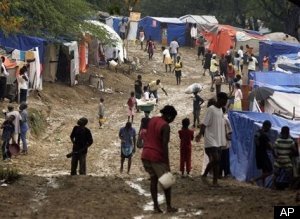Huffington post
Richard Attias | March 14, 2012
 Last week in Rabat, Morocco, we launched the Global Food Security Forum, which was created as an initiative of OCP Group (the world’s leading provider of phosphates based in Morocco). We felt the particularly urgent need to do this now, because as climate change affects weather patterns across the globe, and political tensions flare up, food security will become one of the most pressing issues for the world’s leaders to deal with — if it isn’t already.
Last week in Rabat, Morocco, we launched the Global Food Security Forum, which was created as an initiative of OCP Group (the world’s leading provider of phosphates based in Morocco). We felt the particularly urgent need to do this now, because as climate change affects weather patterns across the globe, and political tensions flare up, food security will become one of the most pressing issues for the world’s leaders to deal with — if it isn’t already.
We challenged the 200 experts in the field gathered with us to “think differently.” We need a Big Idea — preferably many of them — to push forward in every area of this topic, and to redress the global balance between providers, achieve some parity in pricing, and stop the trading of food as a commodity that serves merely to inflate stock market prices.
And these experts responded to our challenge in force — in two hours, we captured 2,000 suggestions. Together, we spent the next 36 hours trying to find these Big Ideas. We threw out the rule books, and research, and data — and looked afresh at every facet of food security. We cannot afford to wait any longer.
Right now, the statistics are concerning. Across the world, 850 million people in 77 lower-income countries are food insecure, according to the US Department of Agriculture. Lack of access to adequate food is closely linked to poverty. War, disease, environmental degradation and a host of other issues limit people’s access to enough nourishment to live a healthy life.
In many regions access to food is a problem of worrying proportions. The famine in Somalia has officially ended, but the UN estimates that 325,000 childrenthere are still acutely malnourished. In Yemen, UNICEF has warned that rates of malnourishment among children are unacceptably high due to chronic poverty, conflict and drought. Many other nations are grappling with a similar fate.
The growth of the world’s population presents the biggest challenge. The US State Department estimates that to we will need to increase global food production by 70% before 2050. That’s a staggering figure.
Despite all these challenges, there are many reasons to be hopeful. A study published by the US Department of Agriculture found that in 2010 and 2011 there was a decline in the number of food insecure people, in spite of high food commodity prices. Over the next decace the department projects that the number of people suffering from a lack of food will decrease by 16% — that’s nearly 140 million.
At its core, it’s an economic issue. Governments must empower farmers and figure out ways to make the sector more exciting (sexier, even) to young people. It’s about training, trade policy and about developing effective public-private partnerships. As Norman Uphoff, Director of the Cornell Institute for Public Affairs, pointed out at the Forum’s closing session,
We need to look at profitability and productivity. We must engage with farmers’ reality, challenges, their needs and their aspirations. We must promote solidarity with farmers — it isn’t them, but us. We should promote farmer-to-farmer peer support and knowledge sharing.
Much work remains to be done but at the Global Food Security Forum there was plenty of cause for optimism. Roberto Rodrigues, coordinator of the Getulio Vargas Foundation Agribusiness Center, summed up the mood:
For the first time, I have heard everyone speak with one voice that agriculture is a business. We need to attract young people and we can only do that if nobility is returned to the profession. Farmers aren’t stupid and they don’t need to be poor. We have heard some real concrete actions. Democracy: that was the great mark of this meeting. Everybody had a voice.
.






